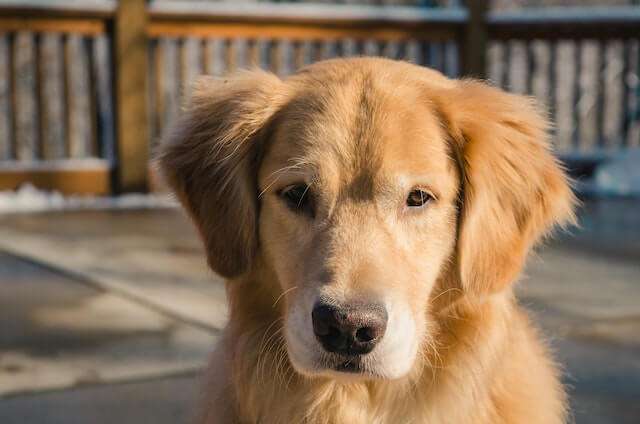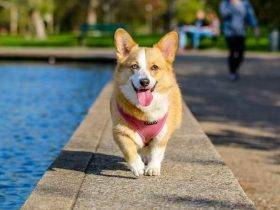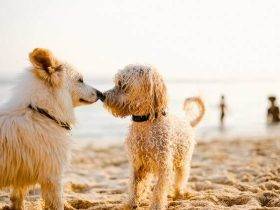In the world of writing, adhering to proper capitalization rules is essential for clarity and professionalism. When it comes to discussing dog breeds, you might wonder whether they should be capitalized or not. In this blog post, we will explore the rules surrounding capitalization for dog breeds, providing you with a clear understanding on the topic are dog breeds capitalized and how to correctly write and capitalize breed names.
Do you capitalize breeds of dogs?
How to effectively capitalize dog Breed Names
When referring to specific dog breeds, it is generally accepted to capitalize their names. For example, “Labrador Retriever,” “German Shepherd,” and “Golden Retriever” should all be capitalized. Treating breed names as proper nouns emphasizes their individuality and helps differentiate them from common nouns. so, the question do you capitalize names of dog breeds, yes we do.
How to Capitalize Mixed Breed Considerations
In the case of mixed breed dogs, where two or more breeds are combined, dog breeds capitalization rules can vary. If the specific mix or combination has a recognized name, capitalize it accordingly. For example, “Labradoodle” (Labrador Retriever + Poodle) and “Cockapoo” (Cocker Spaniel + Poodle) are capitalized. However, if you are referring to a general mixed breed without a specific name, it is acceptable to write it in lowercase, such as “mixed breed dog” or “mutt.”
Breed Varieties and Types
Some dog breeds have different varieties or types within their breed, which may or may not require capitalization. For instance, “English Bulldog” and “French Bulldog” are capitalized because they represent distinct breeds. On the other hand, when referring to variations within a breed, such as “standard poodle” or “miniature schnauzer,” lowercase is used as these terms describe different sizes or variations of the breed.
7 types of dog breeds
Sporting Dog Breeds
Sporting dog breeds possess an abundance of energy and make excellent companions for active individuals. From the agile and friendly Labrador Retriever to the versatile and intelligent Golden Retriever, these breeds excel in activities such as hunting, retrieving, and participating in various dog sports. Discover their athleticism, trainability, and joyful nature.
Herding Dog Breeds
Known for their exceptional intelligence and natural herding instincts, herding dog breeds are adept at working with livestock. Uncover the remarkable intelligence and agility of breeds like the Border Collie, Australian Shepherd, and German Shepherd. Learn about their herding abilities, loyalty, and their potential as versatile family pets.
Toy Dog Breeds
Toy dog breeds may be small in size, but they are big on personality. These pint-sized companions bring joy and companionship to their owners. Explore breeds like the Chihuahua, Pomeranian, and Yorkshire Terrier, known for their charm, playfulness, and adaptability to various living environments. Discover their grooming needs and how they thrive as loving lapdogs
Working Dog Breeds
Working dog breeds are renowned for their strength, intelligence, and impressive capabilities in various tasks. From the noble and protective Rottweiler to the dedicated and courageous Boxer, these breeds excel in roles such as guarding, search and rescue, and police work. Unveil their loyalty, trainability, and natural instincts that make them exceptional working companions.
Hound Dog Breeds
Hound dog breeds possess an acute sense of smell and an unwavering determination when it comes to tracking scents. Learn about breeds like the Beagle, Bloodhound, and Dachshund, known for their extraordinary tracking abilities, loyalty, and affectionate nature. Discover how these breeds thrive in scent-related activities and make delightful family pets.
Terrier Dog Breeds
Terrier dog breeds are known for their feisty and courageous personalities. These small to medium-sized dogs are full of energy and exhibit a zest for life. Explore breeds like the Jack Russell Terrier, Scottish Terrier, and Bull Terrier, known for their determination, intelligence, and tenacious nature. Discover how they excel in activities like earthdog trials and agility.
Non-Sporting Dog Breeds
Non-sporting dog breeds encompass a diverse group of breeds with distinct characteristics. From the regal and dignified Bulldog to the playful and friendly French Bulldog, these breeds vary widely in size, appearance, and temperament. Uncover their unique traits, adaptability to different lifestyles, and the joy they bring as loyal companions
Conclusion
The world of dog breeds is a testament to the incredible diversity of our four-legged friends. From the spirited sporting breeds to the intelligent herding breeds, the delightful toy breeds, and the determined terrier breeds, each type offers a distinct set of traits and qualities. Exploring these seven types of dog breeds has allowed us to appreciate the remarkable attributes that make them such cherished companions. Whether you’re seeking an active partner, a devoted guardian, or a cuddly lapdog, there’s a breed out there that’s perfectly suited to your preferences and lifestyle.
Breed Group Names
Dog breeds are often categorized into various groups, such as sporting, herding, or toy groups. In general, these group names are not capitalized unless they are part of a formal title. For example, “the toy group” or “the herding group” are written in lowercase. However, if you mention “The American Kennel Club’s Herding Group,” where “Herding Group” is part of the official title, it should be capitalized.
Context and Style Guides
are dog breeds capitalized ap style, in some cases, the capitalization of dog breed names may depend on the specific style guide or editorial preference being followed. Different style guides, such as the Associated Press (AP) Stylebook or the Chicago Manual of Style, may have slight variations in their recommendations. It is advisable to consult the relevant style guide or adhere to the preferred style of the publication you are writing for.
Breed-Specific Organizations
n some cases, breed-specific organizations or kennel clubs may have their own guidelines for capitalization. For example, if a particular organization follows a specific naming convention for a breed, it is advisable to capitalize the breed name as per their guidelines. This ensures consistency within the organization and when communicating with members and enthusiasts.
Breed Names as Adjectives
When using a breed name as an adjective to describe a noun, it is generally not capitalized. For instance, “a golden retriever puppy” or “a poodle mix” would be written in lowercase because the breed name is functioning as an adjective modifying the noun. However, if the breed name is part of a recognized and specific breed, it would be capitalized, such as “a Labrador Retriever puppy” or “a German Shepherd mix.”
Context and Emphasis
Consider the context and emphasis when deciding whether to capitalize a breed name. If you want to highlight the breed or emphasize its significance, capitalization can be used. For example, in a sentence like “The German Shepherd is renowned for its intelligence and loyalty,” capitalizing “German Shepherd” draws attention to the specific breed being discussed.
Consistency in Writing
Maintaining consistency throughout your writing is crucial. Once you decide on a capitalization style for dog breeds, be sure to apply it consistently throughout your content. This consistency ensures a professional and polished appearance while avoiding confusion or inconsistency within the same piece of writing.
Additional Grammar and Style Considerations
While capitalization is an important aspect, it is equally crucial to follow other grammar and style guidelines. Ensure proper punctuation, sentence structure, and formatting are also adhered to when writing about dog breeds. This attention to detail contributes to the overall readability and professionalism of your content.
When writing about dog breeds, capitalization plays a crucial role in maintaining consistency and clarity. In general, specific breed names are capitalized, while mixed breed names and variations within breeds are often written in lowercase. Understanding the rules surrounding capitalization for dog breeds will enhance the professionalism and correctness of your pet-related content. Remember to consider context, specific style guides, and editorial preferences to ensure your writing aligns with industry standards.
General conclusion
Understanding the rules of capitalization for dog breeds is essential for clear and accurate communication in pet-related content. By following these guidelines, which include capitalizing specific breed names, considering mixed breeds and variations, following breed-specific organization guidelines, and maintaining consistency in writing, you can effectively convey information about dog breeds in a grammatically correct and professional manner. Remember to consider context, style guides, and the preferences of the target audience to ensure your content is accurate and easily understood by readers.





Usually I do not read post on blogs, but I would like to say that this write-up very forced me to try and do it! Your writing style has been surprised me. Thanks, quite nice post.
It’s actually a nice and useful piece of information. I’m glad that you just shared this helpful info with us. Please stay us up to date like this. Thank you for sharing.
I like the valuable information you provide in your articles. I’ll bookmark your blog and check once more right here frequently. I am fairly sure I’ll learn a lot of new stuff proper here! Good luck for the following!
Very well written article. It will be valuable to anybody who usess it, as well as me. Keep doing what you are doing – can’r wait to read more posts.
My spouse and i ended up being quite joyful that Edward managed to conclude his basic research through the entire precious recommendations he grabbed from your own web page. It’s not at all simplistic to just continually be giving freely ideas some other people may have been making money from. And now we see we need you to appreciate for this. The main illustrations you’ve made, the easy website navigation, the relationships your site help promote – it is everything exceptional, and it is assisting our son and our family consider that the subject is awesome, and that is truly mandatory. Many thanks for all!
You should take part in a contest for the most effective blogs on the web. I’ll suggest this site!
Normally I don’t learn article on blogs, however I wish to say that this write-up very compelled me to try and do it! Your writing style has been amazed me. Thanks, quite great article.
As I web-site possessor I believe the content material here is rattling fantastic , appreciate it for your hard work. You should keep it up forever! Good Luck.
Fantastic beat ! I wish to apprentice while you amend your web site, how could i subscribe for a blog website? The account helped me a acceptable deal. I had been tiny bit acquainted of this your broadcast provided bright clear idea
I do agree with all of the ideas you have presented in your post. They’re very convincing and will definitely work. Still, the posts are very short for beginners. Could you please extend them a bit from next time? Thanks for the post.
I’m not sure where you’re getting your information, but great topic. I needs to spend some time learning more or understanding more. Thanks for great information I was looking for this info for my mission.